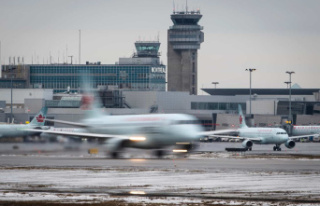We often hear that it is impossible to live without a car. This is less and less true for many of us.
I am living proof. I've been together for a quarter of a century, and we've only had one car for 24 years (and I live in the countryside). When we lived in Old Montreal, we did without it for eight years.
You will tell me that not everyone can afford to live in the heart of a big city, especially with children. It's true. But in 2022, many technologies allow you to unchain yourself from the car. Because, financially, the car is a huge financial burden.
The costs
Canadian households spent 18.5% of their budget on transportation, more than food (14.9%). Of this share, they spend an average of $11,258 on their car, according to figures published in 2022 by Statistics Canada.
In fact, each Canadian household owned an average of 1.4 vehicles. According to a survey commissioned by car-sharing service Turo, 84% of Quebecers own or rent a car.
However, from a financial point of view, this situation is totally illogical. Because, according to Turo, this car is parked 95.7% of the time (a figure revealed 20 years ago by California researcher Donald Schoup).
Alternatives
Worse, the average distance traveled by Canadians to commute between work and home is less than 30 kilometers (less than 5 kilometers for 35% and between 5 to 10 km for 23% of us), according to an analysis by the National Center Advanced Transportation and Electric Mobility Canada. And 74% of Canadian commuters use the car.
However, the pandemic represents an opportunity to question our habits. With telework, we can sell at least one of our two vehicles.
However, according to the Turo survey, Quebecers are the most reluctant to get rid of their car; about 13% are willing to trade it for public transit, carpooling or car sharing.
In the Montreal and Quebec City areas, a monthly transit pass costs around $100, compared to $938.17 for the car. For 30 minutes of average trip, according to Statistics Canada data.
New means of transportation are needed, such as self-service cars (Flex service from Communauto) or car sharing, like Turo, the equivalent of AirBnB for the car. Turo has 133,611 Quebec users, who share 18,436 vehicles.













